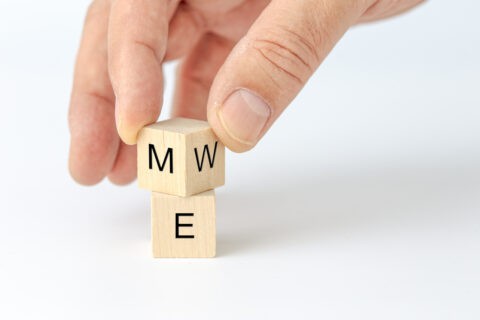
If you are married, then everything you do will ultimately impact your marriage in some way. Your actions (even the ones you think are positive) could have unintended consequences in your marriage. So, how do we avoid the unintended consequences?
My friend Rusty George is an exceptional communicator, a Jesus-loving pastor and an all-around great guy. He wrote an article about these “unintended consequences” and marriage and it really resonated with me. With his permission, I’m posting it here. His words helped me tremendously and I’m sure this will help you too! For additional info about Rusty and his stellar new book, Better Together, please also visit PastorRustyGeorge.com.
“Why Self Improvement Can Kill Your Marriage”
An Excerpt from Rusty George
Think about all the things we are supposed to do to be a successful and thriving person: Exercise 3 times a week. Eat right. Journal. Work on your past. Plan for your future. Invest in your retirement. Set goals. Work hard. Build relationships. Always be learning. Oh, and try to relax. Yet, despite all these things we are lonelier, more insecure, more depressed, and more anxious than ever before. You talk to friends. Read books. Seek counseling. Listen to mentors, experts and life coaches. And the result is you still feel stuck. With all the emphasis on self-improvement, most of us feel more empty and lonely than ever.
Then you read the Bible and it says you’re supposed to “die to self.” And the way you do that is to capture every thought, produce fruit, share your faith, renew your mind, forgive those who have wronged you, etc. etc. Sometimes I feel like I’m even more consumed with me when I’m so focused on trying to die to me. How do I die to myself when I’m constantly thinking about myself?
Recently, I found myself in such a place. It had been a particularly stressful few months filled with disappointments and unmet expectations leading to heightened anxiety. I often find that my life would be a lot easier if everyone (including God) would just do as I say. But, that had not been the case. So I tried my best at self-improvement.
It began with getting a counselor. I met regularly with a local therapist who would help me process my thoughts and give me some direction. Then I wondered if the problem was medical. So I met with a psychiatrist to see if I needed medication. I scheduled an appointment with my doctor for a physical, my chiropractor for an adjustment, and even my dentist for a cleaning (you never know). I also worked on my physical health – I joined a gym, met with a trainer, downloaded diet apps, switched to bulletproof coffee, counted carbs, even took a shot of wheat grass once in a while. I listened to podcasts from the wise and watched videos from experts. I read countless books on fear, anxiety, personal development and even meditation. And while everything brought about a small amount of relief, nothing seemed to last for long. While I lowered my cholesterol and raised my self-awareness, I still felt stuck.
Then one day I woke up and had a bit of a Solomon revelation: Meaningless, meaningless… Everything is meaningless. In all of my work to fix myself, I had lost myself.
Even though I was married, I was alone.
Here are three unintended destinations with self-improvement if we are not careful:
1. Self-improvement can lead to self-consumption.
My obsession with fixing me, led to an obsession WITH me. I began to live what some refer to as a self-hyphenated life: self-consumed and self-righteous all for the sake of self-improvement. Now, as a Pastor, I discourage this type of selfish behavior. But I felt that sense this would ultimately help my ministry, then surely the ends would justify the means. But it didn’t. I was just selfish. My self-consumption was turning my marriage into a “what’s in it for me” relationship.
2. Self-focus can lead to loneliness.
The more I discover about myself, the more I realize… no one is like me. After all the personality tests, strength finders and temperament assessments it put me in a pretty narrow category. I even wondered if my wife was able to understand me.
3. Self-obsession can reduce God.
Since I was on this self-improvement trip, even my daily devotional time became focused on what God could do for me. I only read what I thought would help me. I picked devotionals promising to renew joy and facilitate closeness with God. I’d dust off books from desert fathers or buy books from new pastors all of who offered titles that would be fuel for my soul. But I was just seeing God as the wonderful counselor, and not the Mighty God.
At the end of the day I came to this startling realization.: In my attempt to find myself, I lost myself. Maybe that’s what Jesus meant when he said “Whoever seeks to find himself will loose himself, but whoever looses his life for my sake will find it.” Maybe this is why Jesus so community as being so valuable. He knew the reality that I’m beginning to discover. Self-improvement can’t be done in a vacuum. Self-improvement is better together.
Dave and Ashley Willis have built a strong following, reaching millions of married couples through their blogs, books, and videos. Get Dave and Ashley’s most popular resources for couples and groups. Their mission is to create resources focused on building Christ-centered marriages and families. They have four young sons and live near Augusta, Georgia.












